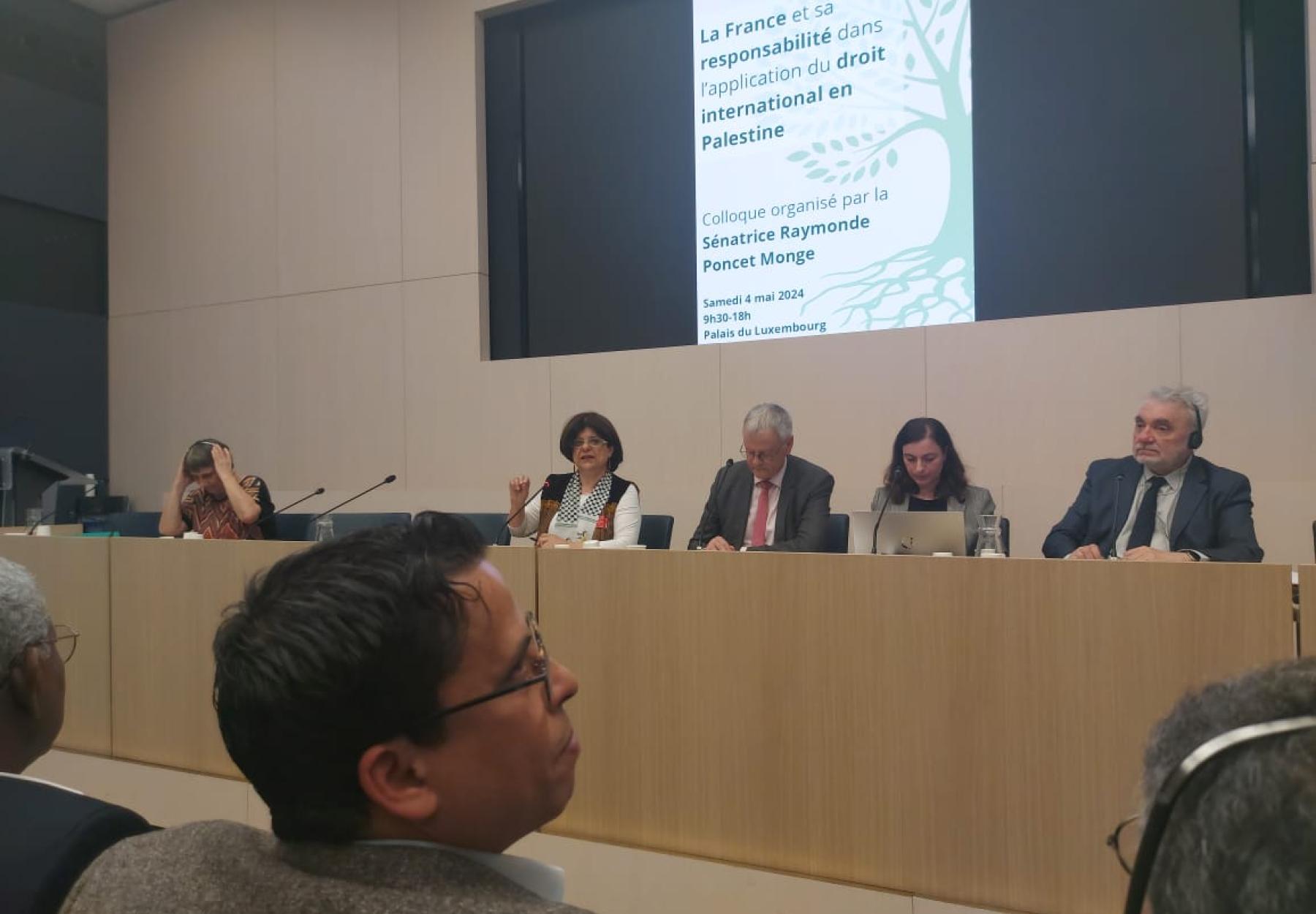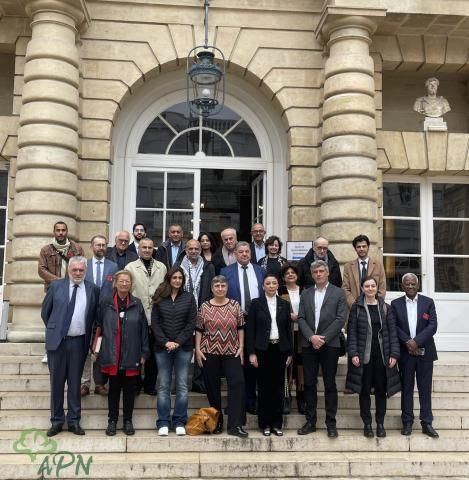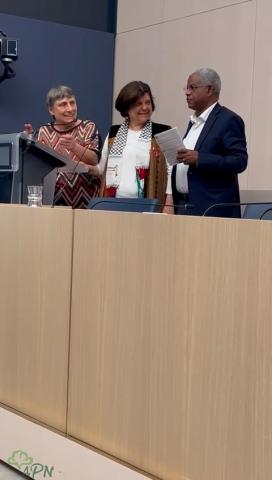
APN | Paris – France
May 2024
French Senator Raymonde Poncet-Monge invited APN Chairperson and Founder of the Arab Network for Food Sovereignty, Razan Zuayter, to speak at a symposium held at the French Senate – Luxembourg Palace, entitled "France and its Responsibility for Implementing International Law in Palestine".
The symposium brought together many prominent advocates for radical solidarity and influential legal figures in support of the Palestinian cause, which faces opposition from the Zionist lobby in the West. Among them was Dr. Ghassan Abu-Sittah, who was barred from entering France by French authorities to attend the symposium. Despite this, he delivered his speech remotely using communication technologies. Also in attendance was lawyer Gilles Devers, dubbed the "lawyer for the Palestinian cause", who spearheaded a group of 300 lawyers in prosecuting "Israel" at the International Court of Justice. Other notable figures included Michael Lynk, former United Nations Special Rapporteur on the human rights situation in the Palestinian Territory occupied since 1967, Mounir Satori, a member of the European Parliament, and Palestinian-French lawyer Rima Hassan, who faces threats in France due to her pro-Palestine stance. Their presence underscored the courage of Senator Monge and Zuayter, who called for a special tribute to honor her and presented her with a keepsake gift, a Palestinian keffiyeh, on behalf of the Palestinian people.
Zuayter was acknowledged for her contributions in bolstering the agricultural and environmental sectors in Palestine, with recognition of her late father Akram Zuayter's contributions to the Palestinian cause.
Zuayter spoke about the "Weaponization of Environment, Food, Ecocide, and Green Resistance" during the third roundtable discussion titled “Palestinians under a settlement colonization and apartheid regime”, focusing particularly on the experiences of living under apartheid and facing ethnic cleansing. This session was moderated by Pascal Boniface, a French researcher and academic specializing in public international law. Boniface serves as the director of the French Institute for International and Strategic Affairs in Paris and has authored several books, including "Pseudo Intellectuals", where he explores how the media manufactures experts in deceit. In this book, he discusses the infiltration of French media and cultural spaces by certain unscrupulous journalists, commentators, and intellectuals who manipulate facts to influence public opinion towards narrow ideological agendas, notably mentioning Bernard-Henri Lévy and his associates.
During her speech, Zuayter highlighted the concept of Green Resistance and discussed how colonialism has isolated Palestinians from their food systems and land. She stressed the role of consulates from colonial countries, such as France, located in Jerusalem, in commodifying land, burdening Arab farmers with loans, thus facilitating the seizure of their land when they default. Zuayter referenced the sponsorship of 14 settlements in 1870 by a French billionaire and the establishment of the first agricultural-settler school in Palestine, known as "Mikveh Israel". Additionally, she pointed out France's role in the construction of Israel's nuclear power plant.
Zuayter concluded her speech, which received widespread acclaim for its content, by offering a series of recommendations. These recommendations included pressing for the legal recognition of ecocide as a crime and holding perpetrators accountable through criminal prosecution. She emphasized the necessity of forcing Israel to comply to international laws, particularly focusing on extraterritorial obligations. Additionally, she called for supporting Palestinians in reviving local food systems to achieve food sovereignty and for severing the involvement of French institutions in environmental and human rights violations, as well as settlement expansion in Palestine. This involvement encompasses companies in the finance, construction, insurance, and the arms industry. Furthermore, she stressed the importance of combating colonial indoctrination in academic institutions and the media and establishing structures for dialogue and genuine solidarity among peoples of the world. She also highlighted the need to be aware of the colonial use of terminology to promote political agendas and maintain oppressive status quo, such as substituting terms like conflict for settler colonialism and occupation, and war and crisis for genocide.


